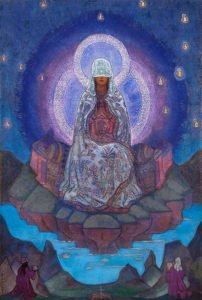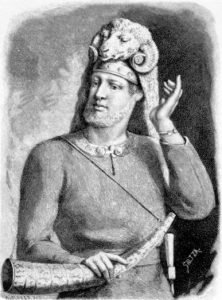 We know there is no system of social organization that can reliably facilitate individual freedom, because systems are forged from people and people are fallible. Certainly there are better and worse systems – the farce of US ‘democracy’ being a nice example of a rapidly disintegrating system that was never that great in the first place – but the best system in the world is still fallible.
We know there is no system of social organization that can reliably facilitate individual freedom, because systems are forged from people and people are fallible. Certainly there are better and worse systems – the farce of US ‘democracy’ being a nice example of a rapidly disintegrating system that was never that great in the first place – but the best system in the world is still fallible.
(This doesn’t mean that we shouldn’t care about what system of social organization we adopt, more on that later).
Since systems are fallible it follows that I might be curious about the fallible humans that make them so. Why are we fallible? Other than the fact that there is a vicious cycle such that a bad system creates more fallible humans, who in turn make for a worse system.
Hmm – a vicious cycle. Perhaps the nature of a circle is that it matters not where we choose to puncture the circumference, so long as we do.
Two significant factors that affect the question of freedom suggest themselves: imagination and fear.
If I lack the time, space, and wit to imagine possibilities for myself I am unlikely to explore them. Tunnel vision is devastating for the possibility that I can exercise my freedom. If I have internalized a thin narrative to the effect that my possibilities are few and rigidly defined, then I again find myself in a vicious cycle. The less I can imagine possibilities, the less I am likely to explore them, the more the story of my limited nature seems compelling.
Authorities sustain their power and domination through constricting our sense of possibilities, our ability to imagine ourselves into multiplicity. To the extent that we base our sense of self on the framework of external authorities we run the risk of choking ourselves. If my self-image is little more than a tangle of (possibly malevolent, at least arbitrary) introjects, then how can I know myself? If I do not know myself, in what sense can my thoughts, feelings, or actions be considered free?
A major mechanism by which authorities impose introjects is fear. Fear that I am doing something wrong. Fear that I will be punished for some shortcoming or other. Fear chokes my capacity for spontaneity. It sets chains of judgment on the bare facts of my experiencing myself. It introduces the burden of better and worse, right and wrong, valid and invalid. These are external values shoehorned onto my experience of myself.
I have to learn how to be myself, and this is a process of identifying and discarding the introjects of control that authority has imposed upon me from birth. Every single narrative of identity needs to be discerned, evaluated, possibly discarded. I must use these constrictions as opportunities to encounter myself. Reflexivity, reflection, are the means by which internalized judgment can be held out and defanged.
Nothing is wasted and there is no need to resent authorities for their imposition of fear. The need lies rather in the process of reflection so that a less mangled relationship with self is possible. Indeed, if we waste time on resentment then we remain entangled with authoritarian, judgmental introjects (this is yet another tactic that authorities use, turning our instinct for courageous freedom against us).
My preferred mechanisms for free-making reflection are meditation and psychotherapy.
Meditation is the patient sitting with my own experience regardless of whether I like it or not. Over time I begin to build an immediate and direct knowledge of my thoughts, feelings, and physical sensations. This is a language of self-understanding that no authority can ever claim. As this deepens, a growing immunity to fear emerges. As I know myself better, I shed layers of attachment to the illusions of my palimpsest sense of self.
This is a slow process. It works. Quick fixes fade all too swiftly by comparison. A year’s worth of meditation will grant far more progress than a year’s worth of desperate, insecure, flamboyant magicking.
Psychotherapy is an opportunity to utilize a relationship as a territory for testing one’s permission to be oneself. As the connection strengthens, safety increases and the pressure to conform to the introjects of society, family, and institutions can wither away. Thus the imagination can begin to flower into a strange and savage new garden.
The process of self-transformation can facilitate increasing compassion, generosity, and sense of humor. As I begin to nourish myself through building an irreducible relationship to self (meditation), through softening the grip of fear (through meditation again), I no longer need to ape the noxious authorities that would have me believe that only through introjected judgment can I be strong or safe.
As my courage to be myself flourishes, perhaps I begin to find ways to play a role in changing or dismantling institutions of authority. If I want to change the systems for the better, and I do not in parallel work to shed my personal fear and poverty of imagination, then it is likely that the best I will do is play a role in exchanging one noxious system for another. This is perhaps part of why revolutions have often replaced one authoritarian regime with another.
Learning love for oneself is a decisive political act that provides a deep basis for, in turn, transforming systems toward permissiveness, curiosity, trust in human spontaneity. It takes courage and a Quixotic sensibility to begin the hunt for freedom. Break the seamless surface of the circle’s skin. The circumference is everywhere and nowhere.
 Typically the model for all personal growth is authoritarianism. We have to shape up, sharpen up, toughen up, lift that sorry, saggy self and push it into the format dictated by some source or other of ‘thus it must be.’
Typically the model for all personal growth is authoritarianism. We have to shape up, sharpen up, toughen up, lift that sorry, saggy self and push it into the format dictated by some source or other of ‘thus it must be.’